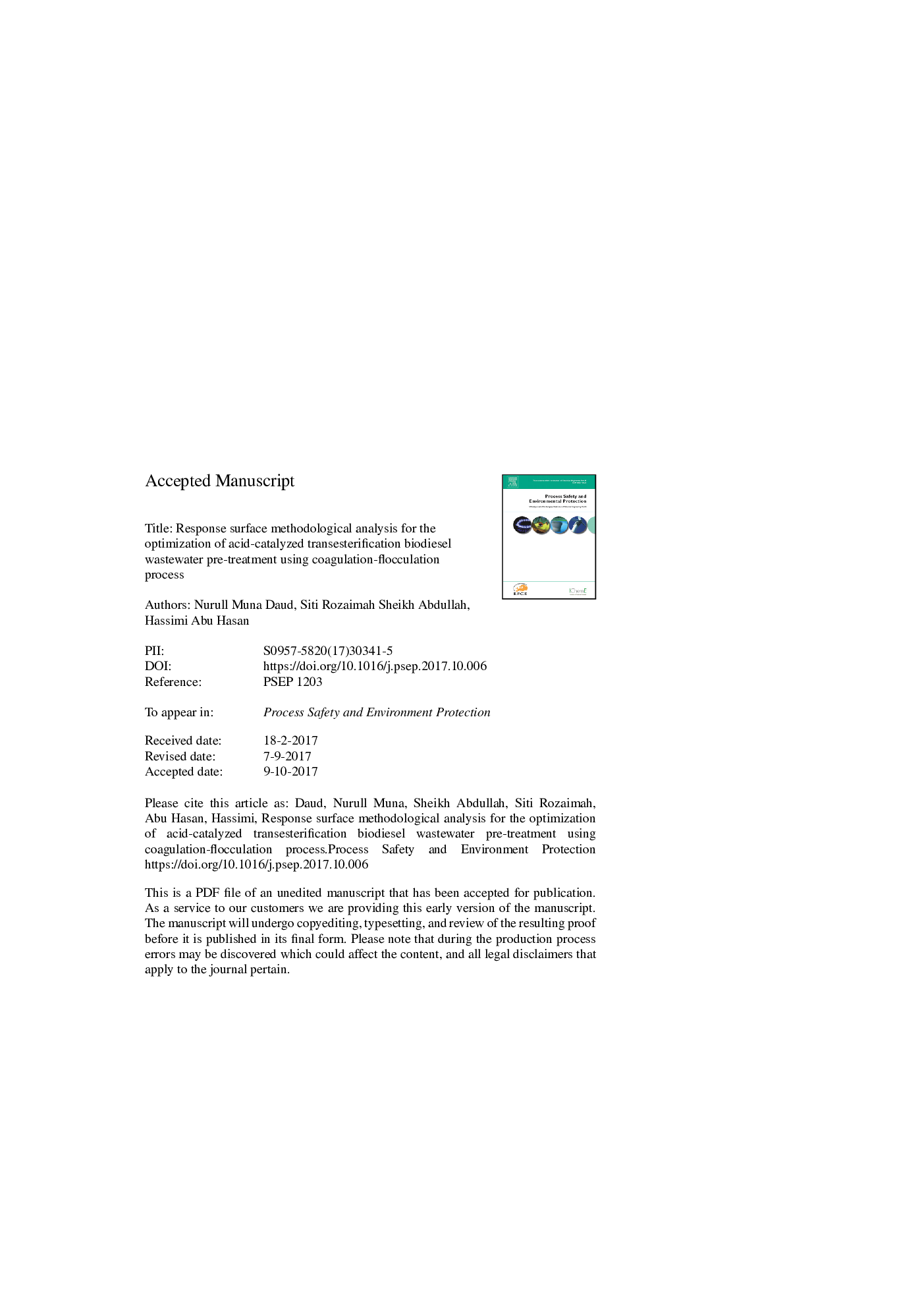| Article ID | Journal | Published Year | Pages | File Type |
|---|---|---|---|---|
| 6974250 | Process Safety and Environmental Protection | 2018 | 19 Pages |
Abstract
Biodiesel wastewater is known as one of the most highly polluted wastewaters with high organic load, high amount of oils and fat contents and other compound such as chloride. The aim of this study is to optimize the coagulation-flocculation process prior to pre-treat biodiesel wastewater. This paper reports the optimal process conditions which were obtained using the Response Surface Methodology (RSM) analysis. This study was done using jar test apparatus. The Box-Behnken design was demonstrated beforehand to optimize this process. The investigated operating variables were coagulant dosage, initial pH, rapid mixing rate and contact time. The optimal process conditions obtained were alum dosage of 2Â g/L, initial pH of 7.13, rapid mixing rate of 200Â rpm and settling time of 65Â min. From the validation test conducted, the results were in reasonable agreement with the modeled values. The coagulant used in this study managed to reduce the COD, SS and turbidity contents by 34.5, 39.0 and 32.0%. respectively. Optimization of coagulation-flocculation can be done using the Response Surface Methodology (RSM) analysis and this proving that coagulation is capable of pre-treating biodiesel wastewater.
Related Topics
Physical Sciences and Engineering
Chemical Engineering
Chemical Health and Safety
Authors
Nurull Muna Daud, Siti Rozaimah Sheikh Abdullah, Hassimi Abu Hasan,
